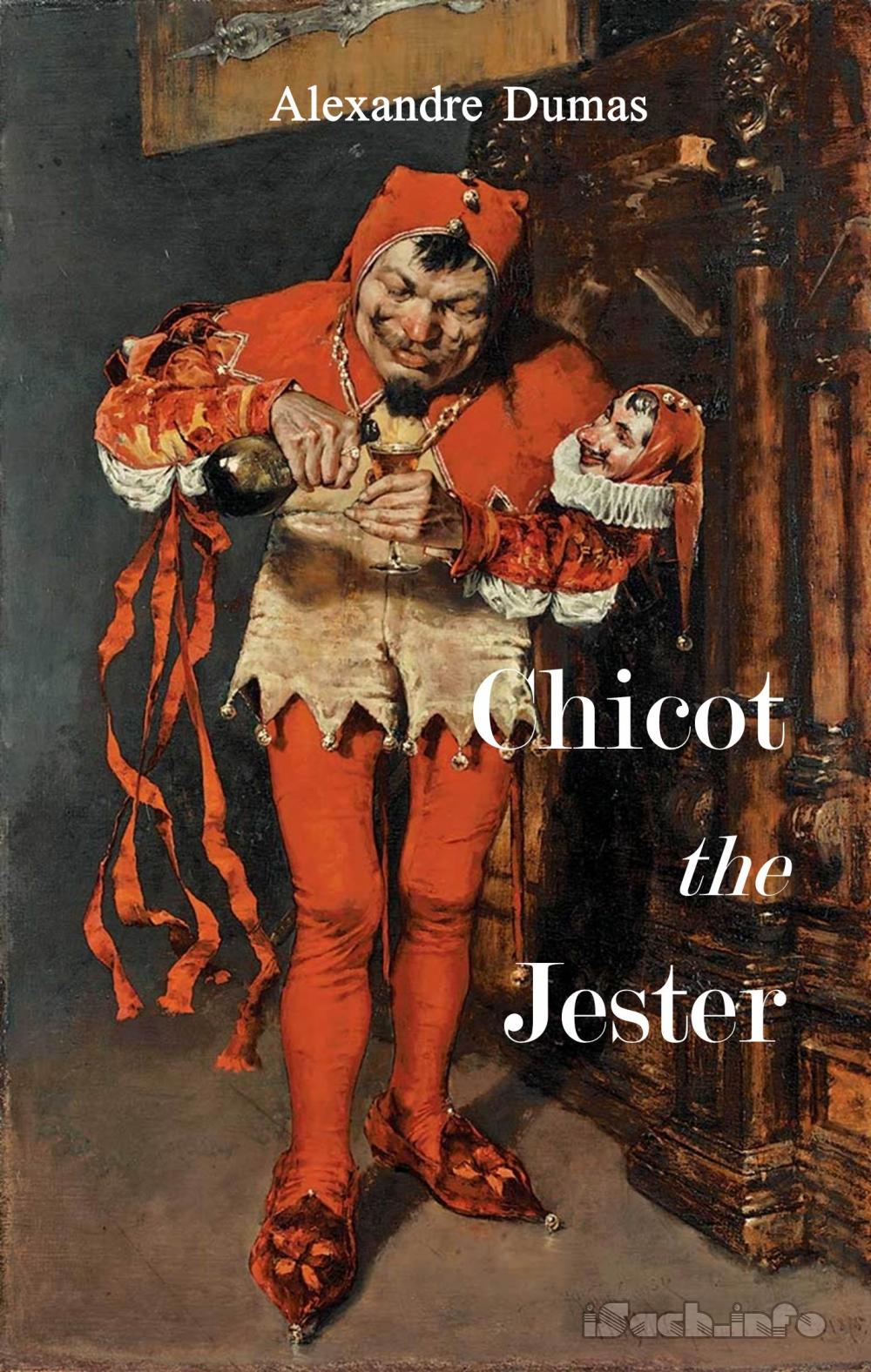Chapter 93: Where Chicot Guesses Why D'Epernon Had Blood On His Feet And None In His Cheeks
T
he king, returning to the Louvre, found his friends peacefully asleep, except D'Epernon, whose bed was empty."Not come in yet; how imprudent," murmured the king to Chicot, who had also returned, and was standing with them by their beds. "The fool; having to fight to-morrow with a man like Bussy, and to take no more care than this. Let them seek M. d'Epernon," said he, going out of the room, and speaking to an usher.
"M. d'Epernon is just coming in, sire," replied the man.
Indeed, D'Epernon came softly along, thinking to glide unperceived to his room.
On seeing the king he looked confused.
"Ah! here you are at last," said Henri; "come here and look at your friends. They are wise! they understand the importance of the duel to-morrow; but you, instead of praying and sleeping like them, have been running about the streets. Corbleu; how pale you are! What will you look like to-morrow?"
D'Epernon was indeed pale, but at the king's remark he colored.
"Now go to bed," continued Henri, "and sleep if you can."
"Why not?"
"Much time you will have. You are to fight at daybreak; and at this time of year the sun rises at four. It is now two; you have but two hours to sleep."
"Two hours well employed go a long way."
"You will sleep, then?"
"Well, sire!"
"I do not believe it."
"Why not?"
"Because you are agitated; you think of to-morrow."
"I will sleep, sire, if your majesty will only let me."
"That is just," said Chicot.
Indeed D'Epernon undressed and got into bed, with a calm and satisfied look, that seemed, both to the king and Chicot to augur well.
"He is as brave as a Cæsar," said the king.
"So brave that I do not understand it," said Chicot.
"See, he sleeps already."
Chicot approached the bed to look.
"Oh!" said he.
"What is it?"
"Look," and he pointed to D'Epernon's boots.
"Blood!"
"He has been walking in blood."
"Can he be wounded?" said the king, anxiously.
"Bah! he would have told us; and, besides, unless he had been wounded like Achilles in the heel——"
"See, the sleeve of his doublet is also spotted. What can have happened to him?"
"Perhaps he has killed some one to keep his hand in."
"It is singular. Well, to-morrow, at least——"
"To-day, you mean."
"Well! to-day I shall be tranquil."
"Why so?"
"Because those cursed Angevins will be killed."
"You think so, Henri?"
"I am sure of it; my friends are brave."
"I never heard that the Angevins were cowards."
"No, doubtless; but my friends are so strong; look at Schomberg's arm; what muscle!"
"Ah! if you saw Autragues's! Is that all that reassures you?"
"No; come, and I will show you something."
"Where?"
"In my room."
"And this something makes you confident of victory?"
"Yes."
"Come, then."
"Wait, and let me take leave of them. Adieu, my good friends," murmured the king, as he stooped and imprinted a light kiss on each of their foreheads.
Chicot was not superstitious, but as he looked on, his imagination pictured a living man making his adieux to the dead.
"It is singular," thought he. "I never felt so before—poor fellows."
As soon as the king quitted the room, D'Epernon opened his eyes; and, jumping out of bed, began to efface, as well as he could, the spots of blood on his clothes. Then he went to bed again.
As for Henri, he conducted Chicot to his room, and opened a long ebony coffer lined with white satin.
"Look!" said he.
"Swords!"
"Yes! but blessed swords, my dear friend."
"Blessed! by whom?"
"By our holy father the Pope, who granted me this favor. To send this box to Rome and back, cost me twenty horses and four men."
"Are they sharp?"
"Doubtless; but their great merit is that they are blessed."
"Yes, I know that; but still I should like to be sure they are sharp."
"Pagan!"
"Let us talk of something else."
"Well, be quick."
"You want to sleep?"
"No, to pray."
"In that case we will talk. Have you sent for M. d'Anjou?"
"Yes, he is waiting below."
"What are you going to do with him?"
"Throw him into the Bastile."
"That is very wise: only choose a dungeon that is deep and safe—such for example, as those which were occupied by the Constable de St. Paul, or Armagnac."
"Oh! be easy."
"I know where they sell good black velvet, my son."
"Chicot! he is my brother."
"Ah! true; the family mourning is violet. Shall you speak to him?"
"Yes, certainly, if only to show him that his plots are discovered."
"Hum!"
"Do you disapprove?"
"In your place I should cut short the conversation, and double the imprisonment."
"Let them bring here the Duc d'Anjou," said the king.
A minute after the duke entered, very pale and disarmed. Crillon followed him.
"Where did you find him?" asked the king.
"Sire, his highness was not at home, but I took possession of his hotel in the king's name, and soon after he returned, and we arrested him without resistance."
"That is fortunate." Then, turning to the prince, he said, "Where were you, monsieur?"
"Wherever I was, sire, be sure it was on your business."
"I doubt it."
François bowed.
"Come, tell me where you were while your accomplices were being arrested."
"My accomplices!"
"Yes; your accomplices."
"Sire, your majesty is making some mistake."
"Oh! this time you shall not escape me; your measure of crime is full."
"Sire, be moderate; there is certainly some one who slanders me to you."
"Wretch! you shall die of hunger in a cell of the Bastile!"
"I bow to your orders, whatever they may be."
"Hypocrite! But where were you?"
"Sire, I was serving your majesty, and working for the glory and tranquillity of your reign."
"Really! your audacity is great."
"Bah!" said Chicot, "tell us about it, my prince; it must be curious."
"Sire, I would tell your majesty, had you treated me as a brother, but as you have treated me as a criminal, I will let the event speak for itself."
Then, bowing profoundly to the king, he turned to Crillon and the other officers, and said, "Now, which of you gentlemen will conduct the first prince of the blood to the Bastile?"
Chicot had been reflecting, and a thought struck him.
"Ah!" murmured he, "I believe I guess now why M. d'Epernon had so much blood on his feet and so little in his cheeks."



 ePub
ePub A4
A4